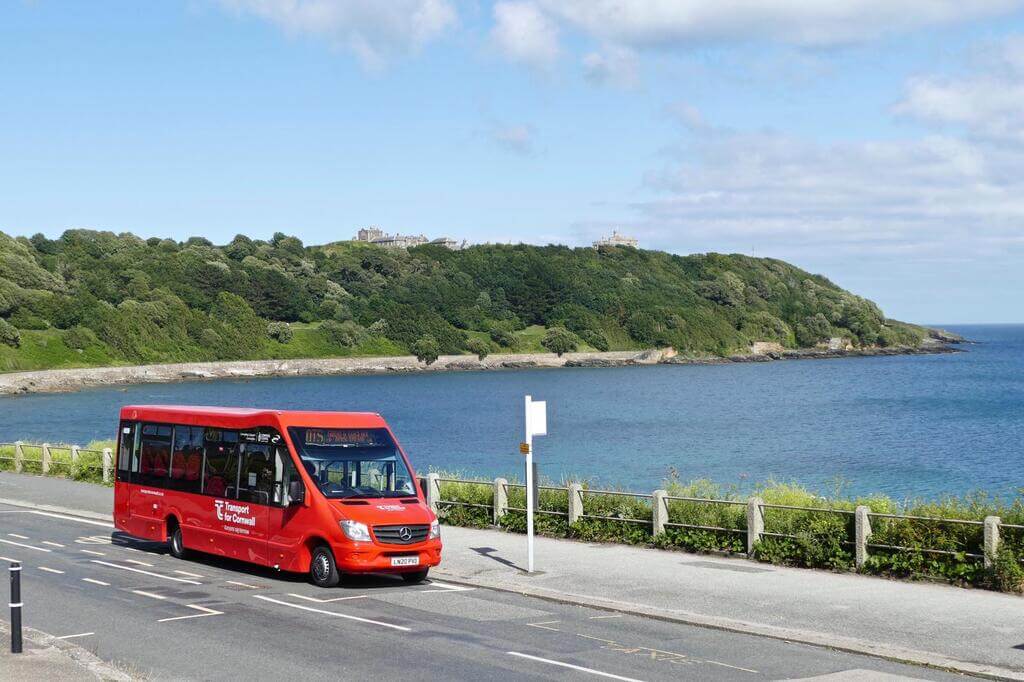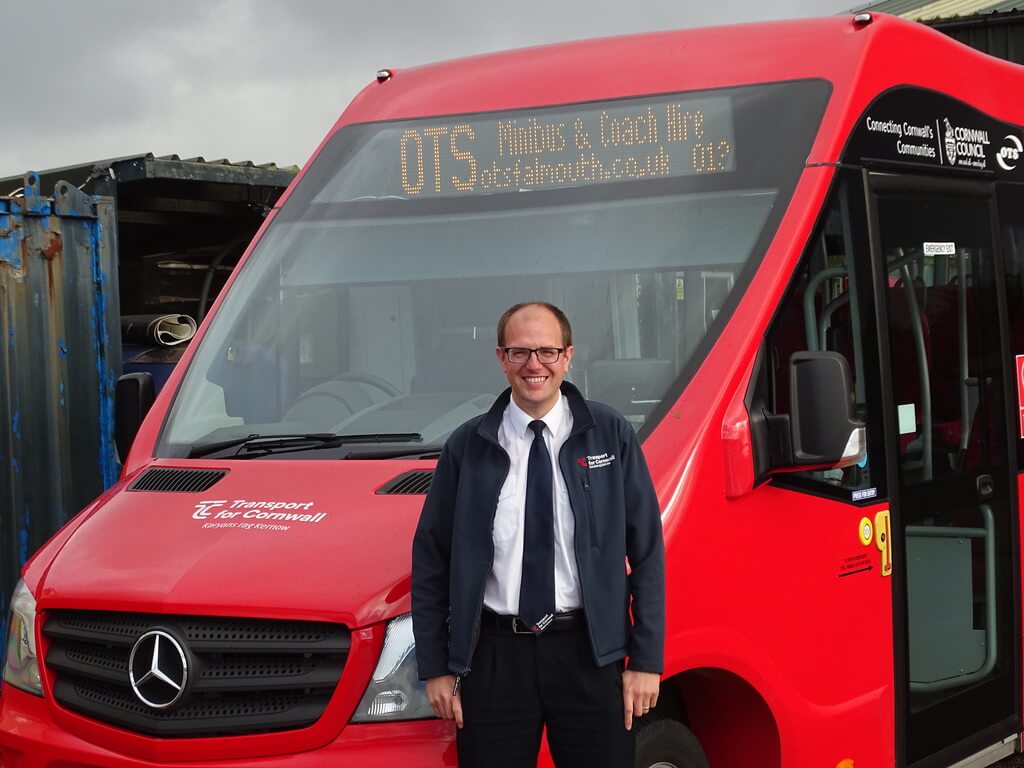Independent operator OTS of Falmouth became a subcontractor of Go Cornwall Bus in March this year. Richard Sharman spoke to the man behind the change
Office & Transport Services Ltd, which trades as OTS, is based in Penryn near Falmouth and was established in 1980. The last time CBW visited OTS was in June 2019, when the operation was at an equal split of one third local services, one third school contracts and one third private hire, but as Bus Service Manager Craig George explains, the company has seen big changes in 2020.
“Around three years ago, Cornwall Council invited all operators engaged in local bus services in Cornwall to join them at County Hall in Truro for a presentation of their ideas and aspirations for local bus services in Cornwall,” he said. “It was made clear that they wanted change, but also that they wanted to work with us collectively to shape that change. 
“It was proposed that a steering group, formed of Cornwall Council, their consultants, bus operators and other stakeholders involved in local public transport such as Great Western and Bus Users UK be formed to guide the process.
“There was a desire to reduce the cost of this process for the SME (Small and Medium Enterprise) operators by electing a representative for all of us. Ben, one of the directors here, nominated me and I was honoured to be accepted by the other local independents.
“In the many meetings that followed, I was keen to defend the interests of SME operators and report back to them on the progress of the process. The excellent John Burch, Regional Director at the CPT also joined us on occasion and I am most grateful for his experienced advice.
“Thankfully, being involved with the steering group enabled us to demonstrate to our friends at both First and Go-Ahead that we were an ambitious operator with high standards and ideals along with growing local bus experience – as are other local independent operators – so the very day of the result publication, which was 19 December if I remember correctly, Richard Stevens at Go Cornwall Bus (GCB) called us to ask if we would like to be involved and if so to what degree.

By subscribing you will benefit from:
- Operator & Supplier Profiles
- Face-to-Face Interviews
- Lastest News
- Test Drives and Reviews
- Legal Updates
- Route Focus
- Industry Insider Opinions
- Passenger Perspective
- Vehicle Launches
- and much more!


